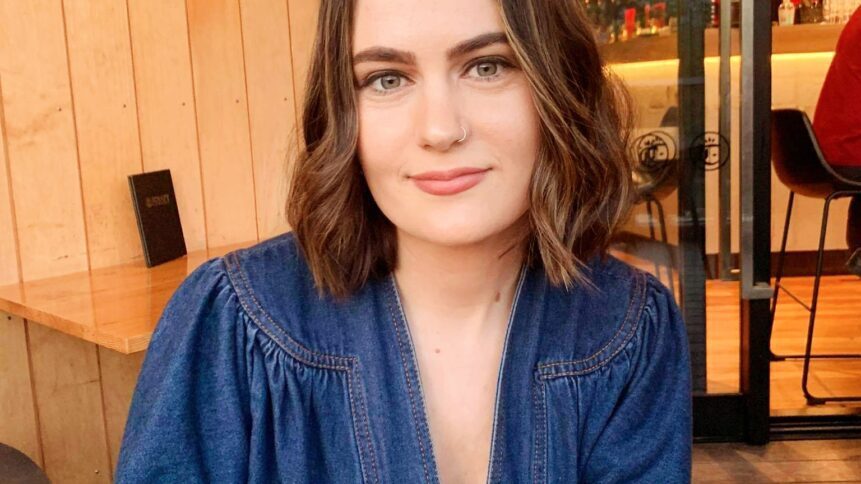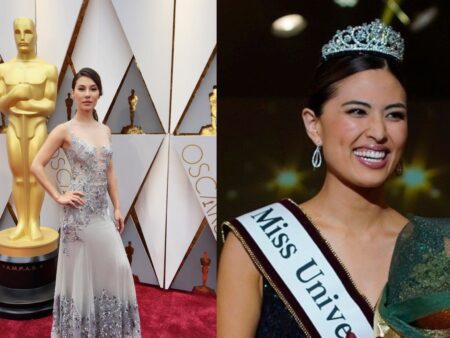
Scroll down to hear the the song “Heartbeat“
Singer songwriter Ali Xanda has never been pregnant or experienced pregnancy loss before; but she was compelled to write a song about the experience after her childhood friend and husband suffered the devastating loss of their unborn baby conceived through IVF.
We sat down to hear more about her connection to this experience and why she was moved to record ‘Heartbeat’ and to share it.
Q: We know that your song Heartbeat was inspired by your friend’s pregnancy loss and other losses that you’ve been connected with through the years. Can you share more about this?
My friend and her husband’s story of loss, which he shared about through a blog, really impacted me and many others, as they had been married 10 years and I guess many of us wondered to ourselves if they were struggling to have kids. They had, in fact, waited seven years before trying, as he had career goals to achieve first; but the past three years had obviously been devastatingly hard for them, as conceiving didn’t come as easily as they had hoped.
I cried reading their story because he shared their experience so honestly and brought us into every part of their journey and what they went through. Eventually, in the essay, you get to the part where they conceive through IVF, and he details their excitement and joy, which is hard to read knowing that the baby didn’t make it. When he described the miscarriage, I wasn’t prepared for how sad reading it would be. He somehow put into words all of the emotions, the thoughts, and the actions they had to take, like him putting away the baby things in the house so she wouldn’t have to see reminders, and sitting down to message those who had known about the pregnancy to let them know the baby had died. But, what hit me most was reading about how uncontrollably his wife, my friend, was crying after she got the news. She was so distressed like nothing he had ever seen before, and that was heartbreaking to read about and very vulnerable for them to share. Their post impacted a lot of people, including me, and soon after, I felt some ideas form that I wanted to write a song about.
The main concepts I wanted to explore in this song was the ‘parent status’ of the bereaved angel parents—the idea that, even though it must seem like it’s ripped from under them when their baby dies, they are still parents to their baby. They have known the unexplainable love of a parent for their child, and the bond between them will stand forever.
My friend’s blog also opened up my awareness of the father’s experience, and how he has to witness the woman he loves go through something so traumatic and heartbreaking, and I thought about just how helpless that would feel. Meanwhile, he is carrying his own feelings of grief.
The main concepts I wanted to explore in this song was the ‘parent status’ of the bereaved angel parents—the idea that, even though it must seem like it’s ripped from under them when their baby dies, they are still parents to their baby. They have known the unexplainable love of a parent for their child, and the bond between them will stand forever.
His blog post wasn’t my first understanding of miscarriage. My mom had four miscarriages, as well as four children, and I knew about this from a young age. It went: miscarriage, miscarriage, my sister, me, miscarriage, my brother, my brother, and then much later, an unexpected pregnancy which turned to a miscarriage. My parents were very open about the first three miscarriages, and I grew up knowing the order of us children amongst those first three losses. Also as a child, somewhere along the line, I remember hearing that because mom had so many miscarriages, it was probably going to happen to me too. I’m not sure that that’s true, but it made me feel more sensitive to the topic.
As I grew older, I found out how my mother’s miscarriages took place and I was horrified. One was in a petrol station where the blood just gushed out and left a mess on the floor. She said, “I’m so sorry, I think I just lost my baby,” paid, and then left. Another time was in a plane, and again, she suddenly lost a whole lot of blood. And another time was, fortunately, on the toilet at a school field trip day (she was a teacher), but it was particularly upsetting because she had tried to prevent it and got no support. She had been quite ill and tried to get her doctor to give her sick leave for the last week of the school term because she knew she might miscarry again. When she said to him, “I’m exhausted,” he callously replied, “So am I, but I’m here working,” or something to that effect. She lost her baby a few days later.
Q: Tell us more about your songwriting journey and why you chose ‘Heartbeat’—a song about miscarriage—to be such a big project for you.
I have been songwriting since I was 10, but I don’t do it that much anymore. I used to write songs about boys, but I still had several songs about “real life” topics. Those ones were always about trying to share a message that would help people.
When I was 22, I met a guy who produced my first (and only) album. But, my writing slowed down after my first real breakup a few years ago because the heartbreak was all I could think about, and I didn’t want to make music from it. Going through that grief was something I’d never been through before – utterly painful and mentally and emotionally exhausting. So much of my hope for the future died.
Now I’m 29 years old and think my experience of heartbreak and waiting for love gives me some empathy and understanding to know what grief feels like: the unbelievable sadness, dashed hopes, and homeless love with nowhere to go. I also know what it’s like to wait forever for a dream to come true—to meet ‘the one’ and settle down together—a dream I never expected to wait so long for and one that almost all my other friends have experienced ahead of me. In a lesser form, these feelings relate to miscarriage, but I’ve only seen that connection recently. At the time I was going through the thick of my grief, it just opened my eyes up, in general, to the pain in the world because I knew so many people had gone through much worse experiences than me. And yet, I felt so bad, so I knew they must’ve felt unimaginably worse. I think my empathy just really grew during my time of heartbreak, and for that I am grateful as it’s helped me to grow in many ways and also to know what to do for others going through a hard time and what to say or not say.
It was wonderful to be songwriting again when I wrote ‘Heartbeat’. I was able to create something removed from my own experiences, but a song that was still very meaningful. I think music is made to be shared, and this felt like something I could share.
Initially, I just wanted to do a simple recording for my friends who had been through it. I approached Josh Mac (my producer) and he did the full works on the song and it blew me away. When I heard the first demo, I started moving my arms and knew I had to have a dance video to go with the song. I remembered Loren Kitto from her choreographing a dance for a school production years ago, and she was really on board to be involved in the project. She understood the heart of it straight away, having had several friends go through miscarriage, too. I am in awe of her talent and the way she portrayed the experience through her dancing, storytelling, and filmmaking. Seeing the final result made me realize it is special and should be shared with more people.
Q: How has this awareness impacted how you now address people who have experienced a miscarriage?
I’ve learned a lot from the content on the miscarriage support Instagram pages I’ve been following, which has been a necessary education. Unfortunately, most people won’t think to learn about it until it affects them, and I was guilty of that kind of ignorance in the past. There were things on these pages I was learning about for the first time and they seemed so obvious when pointed out, but I would’ve had no idea before reading it. There was also content I could already relate to from my own experiences: about the need for people to talk about their grief, and for friends to validate it, and to be patient, caring, and always willing to listen. So I can apply those actions more readily now in the instance of helping my friends through miscarriage.
I also understand, from my own experience, how grief is a long and turbulent journey and it’s worth checking in on people to see how they’re doing because there are always new thoughts we are thinking related to our pain. The miscarriage support pages have shown me that being asked about their babies or how they’re getting on with processing their loss means a lot to most miscarriage survivors; but without knowing that, I maybe wouldn’t have felt as confident to bring it up with friends if I thought it could be upsetting or insensitive.
My experience of heartbreak and waiting for love gives me some empathy and understanding to know what grief feels like: the unbelievable sadness, dashed hopes, and homeless love with nowhere to go.
After writing the song earlier this year, I heard of two other friends going through miscarriages. Both were absolutely devastated by their losses, especially my friend who doesn’t have any children yet and is now looking into foster care with her husband. We have been able to talk about it, which I know she has appreciated. The other friend is very close to me, and she has three children and this would’ve been her fourth, and she so wanted to have this child. She had her miscarriage after I had written ‘Heartbeat’ and so I was able to share it with her and support her a bit better, having learned a bit more about it and what to do. I just listened to her story when she first told me, and then gave her opportunities to share later on, in natural ways in conversation, which she has always responded to. I remembered her due date, and together with a friend, we gave her a gift voucher to a beauty spa, just to give her some me-time and show her we cared.
Another thing that I have done differently since learning more about miscarriage was to personally acknowledge an old friend’s posts on Facebook about infertily and let her know I felt for her. I always loved her posts, but hadn’t messaged her in years. I just knew it was important to mention that I was sorry about their struggles and that I was thinking of her and her partner.
Sometimes bringing up the tough stuff can be difficult, but my breakup and what I have learned online about miscarriage support is that people really appreciate it when you acknowledge their pain and show you care.
Q: Anything else you want to add?
The couple who this song was about conceived their rainbow baby shortly after I shared the original rough recording of my song with them. They are now in their third trimester and doing really well. The song meant so much to them at the time, and still means a lot to them because it is a special tribute to the one they lost, and through it, their little angel has touched a lot of people, near and far.
Ali Xanda, “Heartbeat” featuring Loren Kitto

Listen to stories, share your own, and get feedback from the community.


















